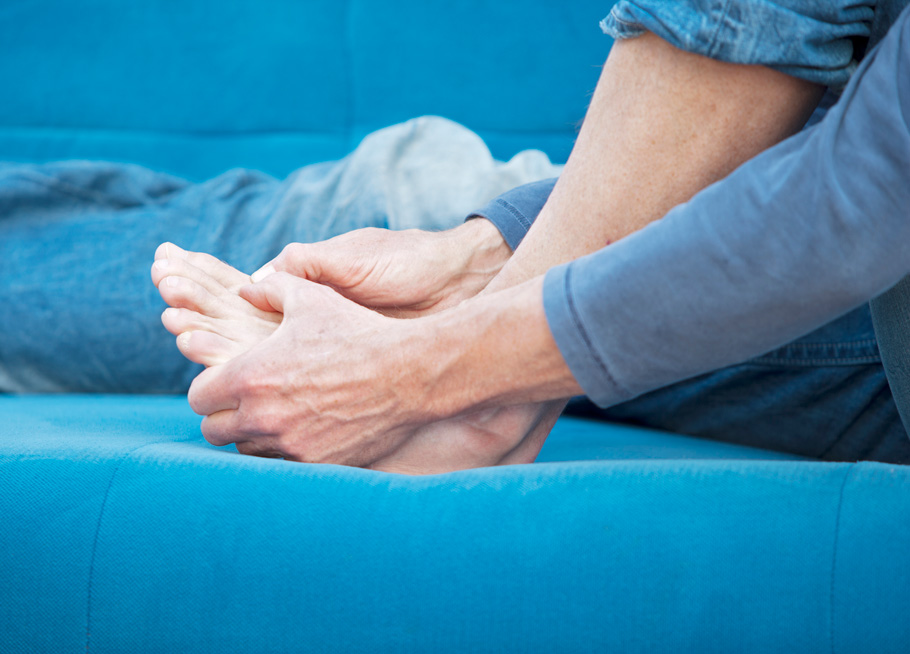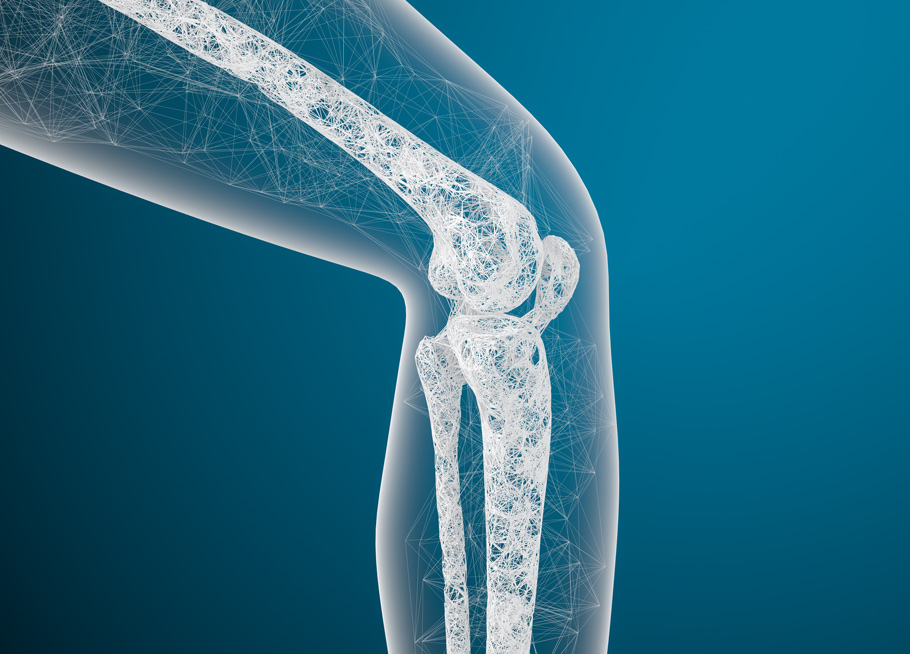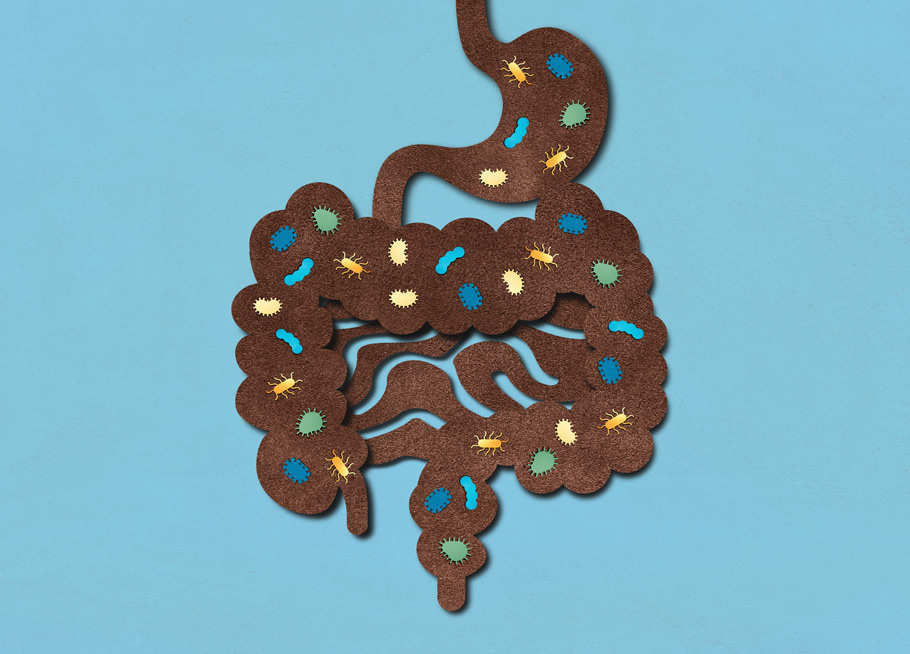
Gout flare-ups occur when there is a sudden increase in the levels of uric acid in the blood, leading to the formation of crystals in the joints, which can be very painful. The UK Gout Society suggests that around 1 in every 40 people in the UK has gout. This painful condition affects considerably more men than women.
But what causes gout? And which lifestyle factors can cause gout flare up? We explore the triggers below.
What Is Gout?
Gout is a complex type of inflammatory arthritis. It is caused by excess uric acid, which is a waste product that the body creates as it breaks down chemicals called ‘purines’. Purines are naturally occurring chemicals that are found in the body and in certain foods and drinks.
In a healthy person, uric acid will simply dissolve in the blood before heading to the kidneys, where it is then processed and exits the body in the urine. However, in individuals with gout, either the body produces too much uric acid or the kidneys are unable to eliminate enough, which leads to a build-up in the joints.
Gout commonly occurs in the joint at the base of the big toe, but it can spread to and affect other joints, including those in the hands, causing hand pain, redness, warmth and swelling. The pain typically begins at night and may be so intense that even the weight of a bedsheet can be unbearable.
If gout is left untreated, it can lead to painful flare-ups, gout tophi (hard, visible nodules under the skin), and permanent joint damage.
What Causes Gout To Flare Up?
Gout flare-ups are often heavily linked to lifestyle factors, which can be managed alongside a careful and comprehensive treatment plan that is tailored to the individual. Contributing factors include:
- Diet – individuals consuming a high volume of foods that are high in purines, such as red meat, shellfish and organ meats may be more likely to experience flare-ups. In addition, those who consume a lot of alcohol, particularly beers and spirits, as well as sugary drinks, may also experience more flare-ups.
- Dehydration – water is really vital to ensuring the body functions optimally, and is really important for flushing toxins out of the body. If you don’t drink enough water, this can lead to higher concentrations of uric acid in the blood, triggering a flare-up.
- Stress – we all know that stress (whether physical or psychological) has a negative impact on the body but periods of prolonged or intense stress are thought to indirectly contribute to gout by raising levels of uric acid in the body. Read more about the link between stress and gout.
- Medications – such as diuretics (used to treat high blood pressure) and some immunosuppressants. During any assessment with us, we will review your medications in addition to examination and review of your medical history and any test results to determine what may be contributing to your condition so that effective steps can be taken to better manage it and improve quality of life.
- Injury – an injury to a joint or recent surgery can trigger a gout attack in the affected area.
- Illness – illnesses and infections can cause a gout flare-up as a result of increased levels of inflammation in the body.
How To Relieve Gout Pain
After careful assessment and diagnosis, gout should be managed with a personalised treatment plan prescribed by a Consultant Rheumatologist in order to reduce the frequency and severity of flare-ups, as well as disease progression.
However, when flare-ups do occur, there are a number of management techniques that you could try at home to help relieve the pain or prevent it from getting worse. These include:
Avoiding trigger foods: During a flare-up, avoid foods and drinks that are high in purines, as consuming these products can worsen your symptoms.
Rest and elevate the affected joint: This can help reduce inflammation and swelling. If you are experiencing hand pain from gout, you may want to try wearing your arm in a sling. If the pain is in your foot or leg and you need to move around, try using crutches or a cane if needed. Avoid knocking the joint, as this can cause sudden and severe pain.
Keep the joint cold: Apply an ice pack to the area for 15 to 20 minutes per day to help reduce inflammation and provide pain relief.
Take pain relief medication: You may wish to use pain relief medication to help with flare-ups, such as over-the-counter nonsteroidal anti-inflammatory drugs (NSAIDs) like ibuprofen, or medications prescribed by your rheumatologist.
Stay calm and reduce stress: It may be hard to remain calm when you are experiencing a painful gout flare-up, but doing what you can in order to relieve stress can actually help prevent the pain from worsening. Try relaxation techniques such as breath work, meditation or gentle stretching where possible.
Can A Rheumatologist Help With Gout Pain?
While there is no cure for gout, a Consultant Rheumatologist can help you manage your condition by creating a treatment plan.
Dr Naveen Bhadauria, Consultant Rheumatologist, explains: “A treatment plan will be designed to prevent disease progression, reduce pain and inflammation during flare-ups, and to lower uric acid levels in the long term to improve your quality of life. Treatment plans may involve taking medication, but will certainly include lifestyle changes, such as maintaining a healthy weight, eating a balanced diet low in purines, staying hydrated and limiting alcohol intake.”
With the right approach to disease management, you can greatly decrease the frequency and intensity of flare-ups, taking away the stress and anxiety that can come with living with gout.
To book a consultation with Consultant Rheumatologist Dr. Naveen Bhadauria, call 0207 126 7264 or book an appointment by using our online booking form.
Article by Dr. Naveen Bhadauria



